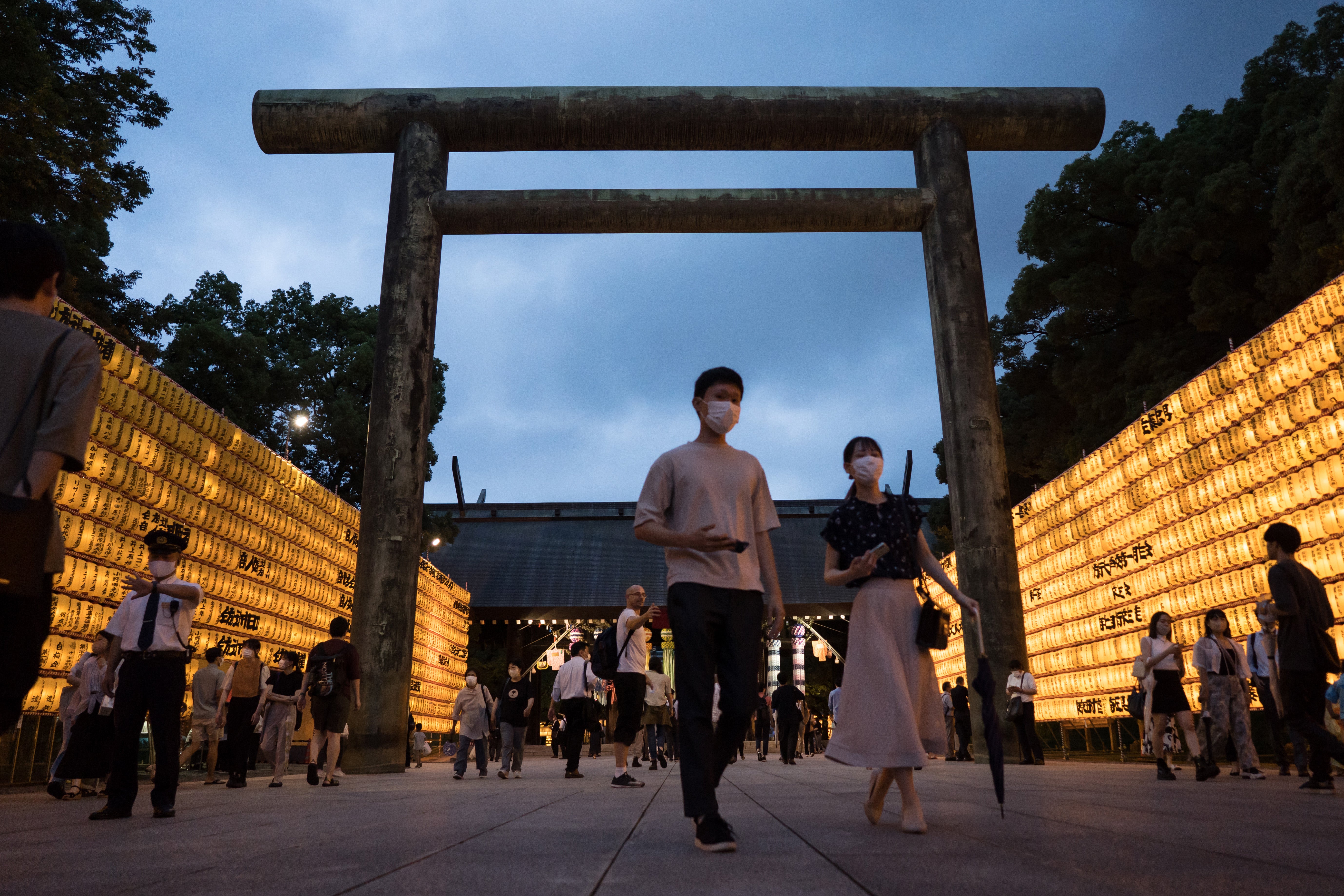Outrage in Japan after man urinates on major Tokyo war memorial
One businessman has offered 10m yen to track down the man who vandalised the controversial Japanese shrine

Your support helps us to tell the story
From reproductive rights to climate change to Big Tech, The Independent is on the ground when the story is developing. Whether it's investigating the financials of Elon Musk's pro-Trump PAC or producing our latest documentary, 'The A Word', which shines a light on the American women fighting for reproductive rights, we know how important it is to parse out the facts from the messaging.
At such a critical moment in US history, we need reporters on the ground. Your donation allows us to keep sending journalists to speak to both sides of the story.
The Independent is trusted by Americans across the entire political spectrum. And unlike many other quality news outlets, we choose not to lock Americans out of our reporting and analysis with paywalls. We believe quality journalism should be available to everyone, paid for by those who can afford it.
Your support makes all the difference.A businessman in Japan has offered a reward of 10m yen (£50,147) to help track down the man, believed to be a Chinese national, seen urinating and spraying graffiti on the Yasukuni war memorial in Tokyo.
Angry Japanese citizens took to social media to express their outrage over the weekend after a video showed the suspect spray-painting the word “toilet” on a stone pillar at the controversial shrine, located just north of the capital’s Imperial Palace, after urinating on it.
The metropolitan police department said the graffiti was inspected on Saturday after the vandalism on Friday night. The man seen in the video reportedly left Japan by the time the police were notified.
Dr Katsuya Takasu, a popular cosmetic surgeon in Japan, initially offered a reward of 5m yen (£25,080) but doubled the amount the following day. He said he would send the money to any country if the suspect was detained abroad.
On Tuesday, he wrote on X: "If you catch him and hand him over to the Japanese Embassy, we will pay you 10m yen."
His offer of a reward has sparked a strong reaction on social media, with many people posting updates on their progress as they actively try to locate the suspect.
The video, which was widely shared online, showed the suspect urinating on the pillar of the Yasukuni Shrine before writing the word “toilet” with red paint. During the footage he only ever identifies himself as “Iron Head”.
“Faced with the Japanese government’s permission to discharge nuclear wastewater. Can we do anything? No, I will give them some colour to see,” he said in the video, according to The Japan Times.
The Japanese government's decision to release treated radioactive water from the tsunami-wrecked Fukushima power plant into the ocean has been severely contested by China, which eventually summoned the Japanese ambassador before banning imports of Japanese seafood.
Tokyo police said they were investigating the video and seeking to speak to the man shown along with others present at the spot, including the person who filmed it.
A piece of paper was found attached to the base of a guardian lion-dog statue, and the other had fallen to the ground, the police added.
Yasukuni Shrine in a statement said that the vandalism was "extremely regrettable", adding that it was "an act degrading its dignity". The graffiti was cleared by Monday and the shrine was open to visitors.
Yasukuni has been a point of diplomatic contention between Japan and other East Asian countries. The shrine honors Japan’s war dead, among them a number of “Class A” convicted war criminals from the Second World War. China and South Korea in particular regard the shrine as a symbol of Japan’s past military aggression.
Last month, Beijing and Seoul expressed strong opposition to a ritual offering made by Japanese prime minister Fumio Kishida at the shrine.
A Chinese foreign ministry spokesperson on Monday urged Chinese citizens “to observe local laws and express (personal views) rationally when abroad”.
Mao Ning told reporters that Yasukuni "is a symbol of Japan's militaristic aggression," and called on Japan to reflect on its history to "earn the trust of its Asian neighbors and the international community through concrete actions."
Join our commenting forum
Join thought-provoking conversations, follow other Independent readers and see their replies
Comments